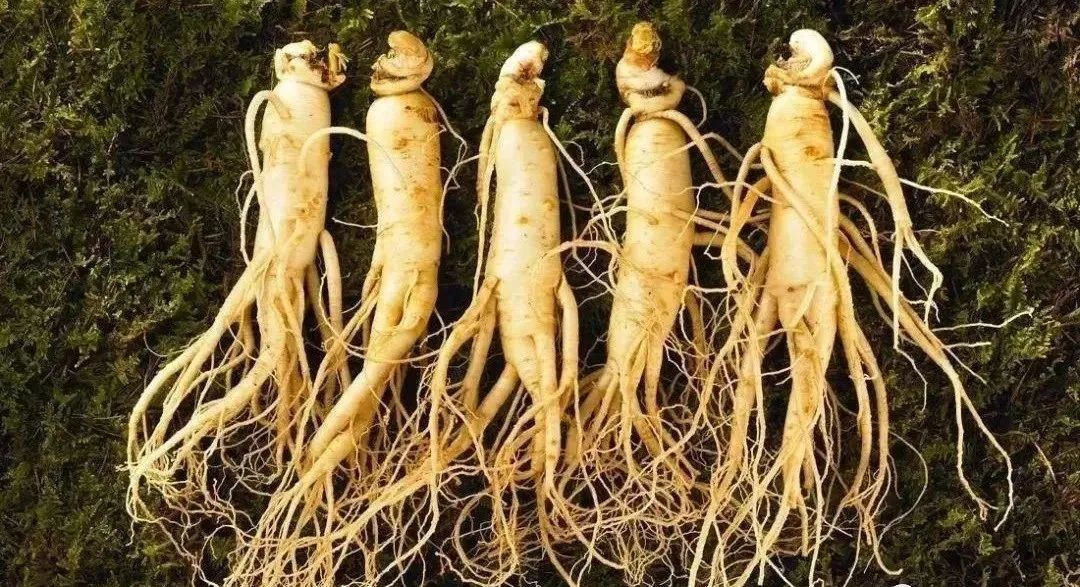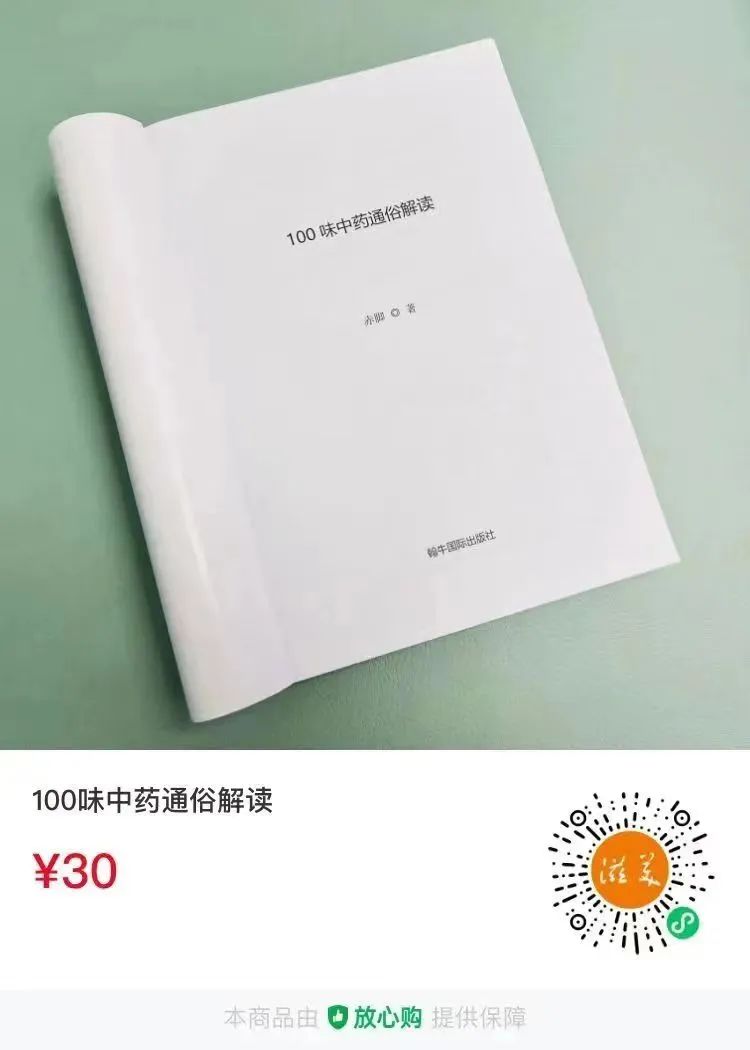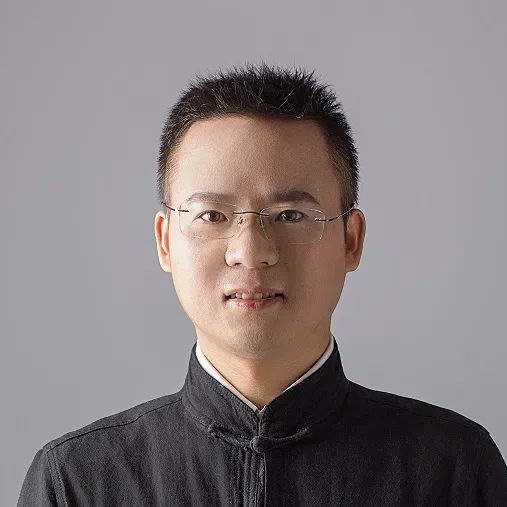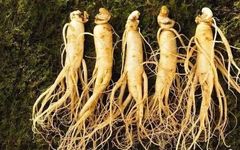When it comes to Ginseng (Ren Shen), many friends are very familiar with it. It is the best tonic for Qi, with the fastest replenishment speed, the best effects, and the most comprehensive range of benefits. Since ancient times, ginseng has been a top-tier supplement, a truly precious medicinal material, ranking among the nine great herbs.According to the Compendium of Materia Medica (Ben Cao Gang Mu), “Ginseng, when aged and gradually matured, has roots resembling a human shape, thus it is called ginseng.” The Classic of Herbal Medicine (Ben Jing) describes ginseng as: nourishing the five organs, calming the spirit, stopping palpitations, dispelling evil qi, brightening the eyes, and enhancing intelligence. The first effect of ginseng is that it can greatly replenish Yuan Qi. Ginseng greatly replenishes Yuan Qi, and can be used to save lives. In TCM, ginseng is regarded as the top medicine for reviving the dead. When a person is on the brink of death, barely breathing, with a weak pulse, it is because their Yuan Qi has been severely depleted.Experienced TCM doctors will use a large dose of ginseng to brew a bowl of pure ginseng soup, which can be taken at once to revive the patient.Why can ginseng revive the dead?Physical blood cannot be quickly replenished, but intangible Qi can be rapidly supplemented.When a person’s Yuan Qi is extremely weak, or when they are in shock and coma due to severe blood loss, ginseng replenishes Qi the fastest, stabilizing the condition in the shortest time, allowing the patient to be revived.The second effect of ginseng is that it not only replenishes Yuan Qi but also replenishes the Qi of the five internal organs.Ginseng can benefit Lung Qi, and for some friends with typical Lung Qi deficiency, if the effects of Huang Qi (Astragalus) are not significant, it is advisable to combine Huang Qi with ginseng for better results, as ginseng quickly replenishes Qi.Ginseng benefits Lung Qi, increases lung capacity, and enhances physical strength. For those with poor physical strength or low lung capacity, drinking ginseng-infused water can improve their condition.Ginseng also benefits Spleen Qi, and nowadays, about 80-90% of people have Spleen deficiency, especially women. If one is still in the deficiency stage without forming a solid condition, and the tongue coating is not thick and greasy, ginseng can be taken to replenish Spleen Qi. However, if there is a thick and greasy coating, ginseng is not recommended, and if it must be used, it should be combined with other herbs.Ginseng can also benefit Kidney Qi, and can treat impotence and premature ejaculation. Impotence causes many men to lose their dignity and is a difficult condition to treat. However, impotence is generally a deficiency syndrome, often due to Liver Qi deficiency and Kidney Qi deficiency. Ginseng can greatly replenish Yuan Qi, thus it can also replenish Liver and Kidney Qi. For those with insufficient Kidney Qi, such as those experiencing poor sexual performance or impotence, trying ginseng may be beneficial.Ginseng can benefit Heart Qi, and for those with heart failure who easily experience palpitations or nightmares at night, ginseng can be taken to replenish Heart Qi.The best medicine for replenishing Heart Qi is Red Ginseng (Hong Shen). Red ginseng is a type of ginseng that has been processed to become red, enhancing its heart-nourishing power.Because red corresponds to the heart.Ginseng can also benefit Liver Qi. For those with depression, there is a small remedy that can help: drink ginseng tea. The specific method is to slice ginseng, take about 2 grams, brew it with hot water, and drink it daily.Why can ginseng help with depression? Because friends with depression often have Liver Qi deficiency, taking ginseng can replenish Liver Qi, helping the liver to release negative emotions. The Classic of Herbal Medicine also states that ginseng can enhance happiness and intelligence.In addition, ginseng has many other benefits, such as improving brain function and memory; those who are forgetful can consume more ginseng, and it is suitable for those with Alzheimer’s disease; those with chronic enteritis and long-term diarrhea can take ginseng to replenish Middle Qi and improve gastrointestinal function; women who experience excessive menstrual flow can consume more ginseng to improve their condition; modern medical research shows that ginseng has good anti-cancer properties…… The benefits of ginseng are countless, and we should remember one thing: ginseng is a tonic for deficiency and Qi; for any organ deficiency, ginseng can replenish it.So who is suitable to take ginseng? The following three types of people are most suitable:First: Elderly and frail individuals. The elderly not only suffer from Yin deficiency and Yang deficiency but also Qi deficiency and blood deficiency, with various organ deficiencies, making them suitable for taking ginseng to replenish.Second: Individuals with Qi deficiency. This is easy to understand; those with Qi deficiency should replenish Qi, and ginseng is the best for that.Third: Cancer patients undergoing chemotherapy, individuals recovering from serious illnesses, and those with weak bodies are suitable for taking ginseng.Ginseng is the best for replenishing Qi, the fastest, and the most comprehensive, but replenishing Qi should not be done recklessly. The following 8 types of people should avoid ginseng; do not consume ginseng indiscriminately. If you really want to take it, it must be done after proper combinations.1. Those with Yin deficiency and internal heat, with a red tongue, should not take ginseng. Because ginseng is warm, it will exacerbate internal heat.2. Those with thick and greasy tongue coating, or those with internal dampness or gastrointestinal stagnation, should not take ginseng. Because if the Qi mechanism is obstructed, supplementation will worsen the condition.3. Those who are prone to oral ulcers or easily get heat should not take ginseng.4. Those with constipation should not take ginseng.5. Those with Liver Qi stagnation or premenstrual syndrome should not take ginseng.6. Those who are currently coughing should not take ginseng.7. Those with heat above and cold below should not take ginseng.8. Those who are robust and healthy do not need to take ginseng.Types of GinsengCurrently, there are many varieties of ginseng on the market, mainly three types: one is wild ginseng found in the mountains, called Wild Mountain Ginseng (Ye Shan Shen); wild mountain ginseng is now basically unavailable, and even if it can be found, it is expensive and not affordable for the average person.Another type is artificially cultivated, called Garden Ginseng (Yuan Shen). Garden ginseng is grown by digging and planting oneself; this type has the weakest Qi replenishing effect, and the ginseng commonly found in pharmacies and hospitals, as well as the Northeast ginseng seen in the market, is basically this type. Garden ginseng is harvested, cleaned of dirt, and dried or baked, and is named “Raw Dried Ginseng (Sheng Shai Shen)” or “White Ginseng (Bai Shen).”Additionally, there is a middle variety between wild mountain ginseng and garden ginseng, called Forest Ginseng (Lin Xia Shen), which is grown by scattering seeds in deep forests and waiting for them to grow, typically harvested after ten to eight years. This type of forest ginseng is considered relatively good and cost-effective.How to Consume Ginseng?Ginseng can be taken for a long time, but not in excess.Each person’s physical condition is different, and the dosage should be chosen based on individual circumstances.My personal suggestion is as follows:Start with a small amount, then gradually increase the dosage daily to find the most suitable amount for your body, which is the best dosage.Ginseng can be decocted, powdered, taken as lozenges, or stewed with chicken or meat. The powdered form can be taken in 2-5g, while decocting ginseng can use 10-30g, which is the usual dosage. Nowadays, the medicinal power of ginseng is generally weaker, so for health maintenance, it should be taken without causing heat.
The first effect of ginseng is that it can greatly replenish Yuan Qi. Ginseng greatly replenishes Yuan Qi, and can be used to save lives. In TCM, ginseng is regarded as the top medicine for reviving the dead. When a person is on the brink of death, barely breathing, with a weak pulse, it is because their Yuan Qi has been severely depleted.Experienced TCM doctors will use a large dose of ginseng to brew a bowl of pure ginseng soup, which can be taken at once to revive the patient.Why can ginseng revive the dead?Physical blood cannot be quickly replenished, but intangible Qi can be rapidly supplemented.When a person’s Yuan Qi is extremely weak, or when they are in shock and coma due to severe blood loss, ginseng replenishes Qi the fastest, stabilizing the condition in the shortest time, allowing the patient to be revived.The second effect of ginseng is that it not only replenishes Yuan Qi but also replenishes the Qi of the five internal organs.Ginseng can benefit Lung Qi, and for some friends with typical Lung Qi deficiency, if the effects of Huang Qi (Astragalus) are not significant, it is advisable to combine Huang Qi with ginseng for better results, as ginseng quickly replenishes Qi.Ginseng benefits Lung Qi, increases lung capacity, and enhances physical strength. For those with poor physical strength or low lung capacity, drinking ginseng-infused water can improve their condition.Ginseng also benefits Spleen Qi, and nowadays, about 80-90% of people have Spleen deficiency, especially women. If one is still in the deficiency stage without forming a solid condition, and the tongue coating is not thick and greasy, ginseng can be taken to replenish Spleen Qi. However, if there is a thick and greasy coating, ginseng is not recommended, and if it must be used, it should be combined with other herbs.Ginseng can also benefit Kidney Qi, and can treat impotence and premature ejaculation. Impotence causes many men to lose their dignity and is a difficult condition to treat. However, impotence is generally a deficiency syndrome, often due to Liver Qi deficiency and Kidney Qi deficiency. Ginseng can greatly replenish Yuan Qi, thus it can also replenish Liver and Kidney Qi. For those with insufficient Kidney Qi, such as those experiencing poor sexual performance or impotence, trying ginseng may be beneficial.Ginseng can benefit Heart Qi, and for those with heart failure who easily experience palpitations or nightmares at night, ginseng can be taken to replenish Heart Qi.The best medicine for replenishing Heart Qi is Red Ginseng (Hong Shen). Red ginseng is a type of ginseng that has been processed to become red, enhancing its heart-nourishing power.Because red corresponds to the heart.Ginseng can also benefit Liver Qi. For those with depression, there is a small remedy that can help: drink ginseng tea. The specific method is to slice ginseng, take about 2 grams, brew it with hot water, and drink it daily.Why can ginseng help with depression? Because friends with depression often have Liver Qi deficiency, taking ginseng can replenish Liver Qi, helping the liver to release negative emotions. The Classic of Herbal Medicine also states that ginseng can enhance happiness and intelligence.In addition, ginseng has many other benefits, such as improving brain function and memory; those who are forgetful can consume more ginseng, and it is suitable for those with Alzheimer’s disease; those with chronic enteritis and long-term diarrhea can take ginseng to replenish Middle Qi and improve gastrointestinal function; women who experience excessive menstrual flow can consume more ginseng to improve their condition; modern medical research shows that ginseng has good anti-cancer properties…… The benefits of ginseng are countless, and we should remember one thing: ginseng is a tonic for deficiency and Qi; for any organ deficiency, ginseng can replenish it.So who is suitable to take ginseng? The following three types of people are most suitable:First: Elderly and frail individuals. The elderly not only suffer from Yin deficiency and Yang deficiency but also Qi deficiency and blood deficiency, with various organ deficiencies, making them suitable for taking ginseng to replenish.Second: Individuals with Qi deficiency. This is easy to understand; those with Qi deficiency should replenish Qi, and ginseng is the best for that.Third: Cancer patients undergoing chemotherapy, individuals recovering from serious illnesses, and those with weak bodies are suitable for taking ginseng.Ginseng is the best for replenishing Qi, the fastest, and the most comprehensive, but replenishing Qi should not be done recklessly. The following 8 types of people should avoid ginseng; do not consume ginseng indiscriminately. If you really want to take it, it must be done after proper combinations.1. Those with Yin deficiency and internal heat, with a red tongue, should not take ginseng. Because ginseng is warm, it will exacerbate internal heat.2. Those with thick and greasy tongue coating, or those with internal dampness or gastrointestinal stagnation, should not take ginseng. Because if the Qi mechanism is obstructed, supplementation will worsen the condition.3. Those who are prone to oral ulcers or easily get heat should not take ginseng.4. Those with constipation should not take ginseng.5. Those with Liver Qi stagnation or premenstrual syndrome should not take ginseng.6. Those who are currently coughing should not take ginseng.7. Those with heat above and cold below should not take ginseng.8. Those who are robust and healthy do not need to take ginseng.Types of GinsengCurrently, there are many varieties of ginseng on the market, mainly three types: one is wild ginseng found in the mountains, called Wild Mountain Ginseng (Ye Shan Shen); wild mountain ginseng is now basically unavailable, and even if it can be found, it is expensive and not affordable for the average person.Another type is artificially cultivated, called Garden Ginseng (Yuan Shen). Garden ginseng is grown by digging and planting oneself; this type has the weakest Qi replenishing effect, and the ginseng commonly found in pharmacies and hospitals, as well as the Northeast ginseng seen in the market, is basically this type. Garden ginseng is harvested, cleaned of dirt, and dried or baked, and is named “Raw Dried Ginseng (Sheng Shai Shen)” or “White Ginseng (Bai Shen).”Additionally, there is a middle variety between wild mountain ginseng and garden ginseng, called Forest Ginseng (Lin Xia Shen), which is grown by scattering seeds in deep forests and waiting for them to grow, typically harvested after ten to eight years. This type of forest ginseng is considered relatively good and cost-effective.How to Consume Ginseng?Ginseng can be taken for a long time, but not in excess.Each person’s physical condition is different, and the dosage should be chosen based on individual circumstances.My personal suggestion is as follows:Start with a small amount, then gradually increase the dosage daily to find the most suitable amount for your body, which is the best dosage.Ginseng can be decocted, powdered, taken as lozenges, or stewed with chicken or meat. The powdered form can be taken in 2-5g, while decocting ginseng can use 10-30g, which is the usual dosage. Nowadays, the medicinal power of ginseng is generally weaker, so for health maintenance, it should be taken without causing heat. Recommended Learning
Recommended Learning
1. Introduction to Basic TCM

2. 9 Major Constitution Adjustment Plans

3. 100 Common Chinese Herbs Explained

4. 100 Classic Common Formulas

5. 365 Common Disease Adjustments

 Barefoot, a moderate person, knows neither astronomy nor geography. This account aims to promote TCM culture, not a platform for seeking medical advice. The formulas shared here are for learning and exchange purposes; do not blindly try medications. The most down-to-earth TCM public account
Barefoot, a moderate person, knows neither astronomy nor geography. This account aims to promote TCM culture, not a platform for seeking medical advice. The formulas shared here are for learning and exchange purposes; do not blindly try medications. The most down-to-earth TCM public account ↑↑↑Scan to follow
↑↑↑Scan to follow

